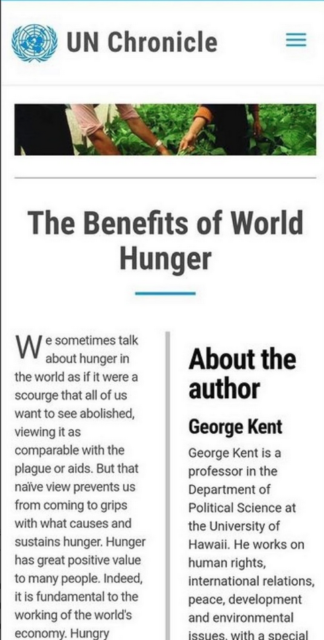Elizabeth Nickson on what is driving so many people to leave their homes and trek north to the US (and, to a much lesser extent, Canada):
Mostly they are coming because Black Rock, the UN, the WEF are grabbing their lands, the more fertile the better, driving them from those lands and sticking them into tenement cities where they have to scratch like chickens for a living. Agenda 2030 is ravening under the radar in the US and Canada, where “civil society” in the pay of the government and environmental NGOs funded by oligarchs, is taking as much land and as many resources as possible out of the productive economy and shoving it into the land banks of BlackRock.
In the south, it’s not surreptitious. It is state policy to destroy their lives, to take their ancestral lands, whether it’s 40 acres or a half acre and leave them begging by the side of the road.
Climate Change is a complex financial mechanism which under the guise of “saving the planet”, is meant to save the predator class.
Which is not only morally bankrupt, but is dealing with a level of government and corporate debt that they know they cannot sustain. In the healthiest economy in the world, the US, all profits now are coming from either some mechanism of government subsidy – the $6 Trillion of the Covid catastrophe – or Collateralized Default Obligations. For instance right now Penguin is in court attempting to buy Random House. Why? Because they can borrow money to do that, buy back some of their stock and pay their shareholders. It will mean middle managers will lose their jobs, and marginal books will not be published, but the ravening maw of Jamie Diamond and Larry Fink will be satiated. For the moment. There is no other reason. Growth, real growth has stalled in every single enterprise.
This is how it works at the top of the class pyramid:
Last week on my island we were treated to the spectacle of well-heeled, highly educated, well-spoken older men and women arguing that the impoverished elderly, the young, and families starting out should not have housing because of climate change. Our island is 74 square miles with 10,000 residents. That means we have one resident per five acres.
Our government, the trust, had proposed the use of accessory buildings, brought up to code, for long-term rentals.
The extreme form of land conservation we practice has meant that housing prices have skyrocketed, so only the rich and the well-pensioned can afford to live here. A thousand or so working age people manage to make a living, generally via remote work. We have no staff for the schools, hospitals, businesses, restaurants. They cannot afford to live here.
About 200 people on our islands, mostly in their 70s and 80s, tightly aligned with the hysterical wing of the environmental movement work the process to stop any growth. Every new resident who pulls a permit is visited and threatened by a by-law officer. The woman who instigated this specific weapon, a former enviro bureaucrat from LA, demanded full time by-law officers for years until she won, after which she fought for aggressive enforcement.
With this one act, she set islanders against each other, creating conflict where there was none. This too is deliberate. A community divided is easily controlled.
Ring any bells?






